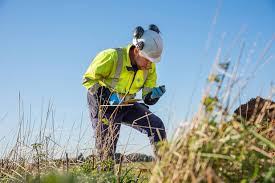Pesticide regulation in Egypt is a crucial aspect of environmental protection, as the use of pesticides in agricultural practices can have significant impacts on the environment and human health. In recent years, there has been a growing recognition of the need to regulate the use of pesticides in Egypt in order to ensure their safe and responsible application. This article aims to examine the current state of pesticide regulation in Egypt and the steps that are being taken to improve environmental consulting firms oversight and monitoring of pesticide use for the protection of both the environment and human health.
Regulating pesticides in Egypt is crucial for environmental protection. The Egyptian Ministry of Agriculture and Land Reclamation is responsible for environmental consulting services overseeing the use of pesticides and ensuring that they are used safely and responsibly. The use of unauthorized or banned pesticides is strictly prohibited in Egypt, and the ministry works to enforce these regulations to protect public health and the environment. In recent years, Egypt has made efforts to strengthen its regulatory framework for pesticides, including establishing the Egyptian Environmental Affairs Agency (EEAA) to monitor and control the use of pesticides. The EEAA conducts regular inspections of pesticide products and their usage to ensure compliance with safety and environmental standards. Additionally, Egypt has implemented policies to promote the use of organic pesticides and integrated pest management as alternatives to chemical pesticides. This approach aims to reduce the environmental and health risks associated with conventional pesticides while supporting sustainable agricultural practices. Overall, the regulation of pesticides in Egypt is an essential step in safeguarding the environment and public health. By enforcing strict controls on pesticide use and promoting sustainable alternatives, Egypt is working to mitigate the negative impacts of pesticides on its ecosystems and communities.
Evaluating the Impact of Pesticide Regulation in Egypt

The impact of pesticide regulation in Egypt has been a subject of study for scientists and researchers. One key aspect of evaluating this impact is to assess the effectiveness of existing regulations in protecting human health and the environment from the adverse effects of pesticides. This includes analyzing data on pesticide residues in food, water, and soil, as well as monitoring the health of agricultural workers and nearby communities. Another important aspect is to examine the economic impact of pesticide regulation, including its effects on agricultural productivity, trade, and food security. This involves conducting cost-benefit analysis to determine the overall societal welfare resulting from pesticide regulation. Additionally, evaluating the impact of pesticide regulation in Egypt involves understanding how regulations are implemented and enforced at the national, regional, and local levels. This includes assessing the capacity of regulatory agencies, environmental inspection services the availability of technical expertise, and the extent of public awareness and compliance with regulations. Furthermore, conducting longitudinal studies to track changes in pesticide use, environmental contamination, and public health outcomes can provide valuable insights into the long-term impact of pesticide regulation in Egypt. It is also important to consider the potential unintended consequences of regulation, such as the emergence of resistance in pest populations and the displacement of harmful pesticides with equally or more harmful alternatives. Overall, the evaluation of pesticide regulation in Egypt requires a multidisciplinary approach that integrates scientific, economic, and regulatory perspectives to inform evidence-based policy decisions and improve the sustainability of agricultural practices in the country.
Challenges and Opportunities in Pesticide Regulation in Egypt
environmental sustainability consultant

Challenges in pesticide regulation in Egypt include the lack of adequate resources for monitoring and enforcement, limited technical expertise, and the prevalence of counterfeit and illegal pesticides. Additionally, there is a need for improved coordination between relevant government agencies and stakeholders. Opportunities in pesticide regulation in Egypt include the potential for strengthening regulatory frameworks, enhancing collaboration with international organizations and partners, and promoting sustainable and integrated pest management practices. There is also an opportunity to raise awareness and provide training on safe and responsible pesticide use among farmers and other key stakeholders in the agricultural sector.
The Need for Strong Pesticide Regulation in Egypt

Egypt is an agricultural country with a significant reliance on pesticides to ensure high crop yields. However, there is a pressing need for strong pesticide regulation in the country due to concerns over the potential health and environmental risks associated with their use. In recent years, there has been a growing awareness of the adverse effects of pesticide exposure on human health, including acute poisoning and long-term chronic health issues. Additionally, there are concerns about pesticide residues contaminating food and water sources, posing a risk to consumers and the environment. Furthermore, the indiscriminate use of pesticides has been linked to the decline of beneficial insects and pollinators, leading to negative impacts on ecosystems and agricultural productivity. To address these issues, there is a need for stringent pesticide regulations in Egypt to ensure the safe and responsible use of these chemicals. This includes measures such as proper labeling and packaging, restricted use of highly toxic pesticides, and enforcement of pesticide application guidelines to minimize risks to human health and the environment. In addition, there is a need for robust monitoring and surveillance systems to track pesticide residues in food and water, as well as to detect illegal or unauthorized pesticide use. By implementing strong pesticide regulation, Egypt can protect the health of its citizens, safeguard the environment, and ensure sustainable agricultural practices for the future.
Assessing the Effectiveness of Pesticide Regulation in Egypt

Assessing the Effectiveness of Pesticide Regulation in Egypt involves evaluating the impact of current regulations on the use of pesticides in agriculture, as well as their potential effects on human health and the environment. This may include assessing the enforcement of regulations, monitoring pesticide residues in food, and studying the prevalence of pesticide-related health issues in the population. Additionally, the effectiveness of pesticide regulation in Egypt can also be measured by evaluating the country's progress in adopting safer and more sustainable pest management practices, such as integrated pest management (IPM) strategies.
Understanding the Current State of Pesticide Regulation in Egypt
Understanding the current state of pesticide regulation in Egypt requires a thorough examination of the existing regulatory framework, enforcement mechanisms, and the impact on public health and the environment. Key aspects to consider include the role of government agencies in monitoring and controlling pesticide use, the adherence to international standards and conventions, and any challenges or gaps in the current system. Additionally, an analysis of the trends in pesticide use, emerging issues, and the effectiveness of current regulations is essential for a comprehensive understanding of the situation in Egypt.
The Role of Government in Pesticide Regulation in Egypt
The role of the government in pesticide regulation in Egypt is to ensure that the use of pesticides is safe for human health, the environment, and agricultural products. The Ministry of Agriculture and Land Reclamation is responsible for regulating the import, manufacturing, and use of pesticides in the country. This includes setting standards for pesticide residues in food and providing licenses for pesticide products. The government also plays a role in monitoring and enforcing compliance with pesticide regulations through inspection and testing of agricultural products. Additionally, government agencies work with research institutions and international organizations to stay updated on the latest scientific knowledge and best practices in pesticide regulation. Overall, the government's role in pesticide regulation is to safeguard public health and the environment while supporting the sustainable use of pesticides in Egyptian agriculture.
Improving Pesticide Regulation for a Healthier Egypt
Improving Pesticide Regulation for a Healthier Egypt is a critical initiative that aims to enhance the safety and sustainability of pesticide use in the country. The project focuses on introducing stronger regulations and enforcement measures to minimize the health and environmental risks associated with pesticide exposure. This includes measures to control the sale and distribution of pesticides, monitor their usage, and educate farmers and agricultural workers on safe handling practices. By improving pesticide regulation, Egypt can promote a healthier environment and reduce the potential negative impacts on public health and ecosystems.
In conclusion, the regulation of pesticides in Egypt is a crucial step for environmental protection. With proper oversight and enforcement, the impact of harmful chemicals on the environment and human health can be significantly reduced. By implementing and enforcing pesticide regulation Egypt can protect its natural resources and safeguard the well-being of its citizens.
environmental testing and consulting
0 comments:
Post a Comment